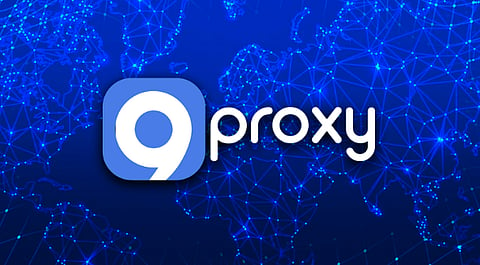

The internet is full of tools that promise simplicity but deliver headaches. Proxies are one of them. Anyone who’s managed a scraping job, run multiple social accounts, or tested ads across regions knows the frustration: data caps, unexpected costs, and proxies that stop working halfway through.
9Proxy takes a slightly different path. Instead of charging for bandwidth, it charges per proxy, each with unlimited data usage. That doesn’t mean connections never fail (residential proxies can go offline at any time), but it does mean users don’t have to stress about data running out. Combined with features like auto-rotation and auto-refresh, 9Proxy is designed to reduce the manual work of keeping projects alive.
Let’s look at how this model works, its strengths, and where it fits in the messy world of proxy use.
Most proxy providers sell bandwidth in gigabytes: 1GB, 5GB, 10GB. Once you hit the limit, you have to buy more. For some users, this is fine. But for anyone dealing with heavier tasks, web scraping, SEO monitoring, or ad testing, those caps disappear fast.
That leads to three main issues:
Unpredictable costs: A job might need more data than expected, and costs keep climbing.
Interrupted workflows: Projects pause when limits are reached.
Constant monitoring: Users end up babysitting dashboards instead of focusing on their work.
It’s a model that creates friction in situations where proxies should be invisible.
9Proxy approaches residential proxy pricing differently. Instead of metering data, it sells proxies individually. Each proxy you buy comes with unlimited bandwidth.
Pricing starts at $0.025 per proxy, making entry affordable.
There are no extra charges for high data usage.
Users can contact 9Proxy directly for promotions or trial opportunities.
Of course, the total cost still depends on how many proxies you need, and nobody can guarantee how long a given residential IP will stay active. But the unlimited model removes one major variable: you’ll never run out of data mid-project.
Here’s the part that’s often glossed over: residential proxies are not permanent. Because they come from real devices, they can go offline without warning. Some last a day, some just a few minutes. That’s the nature of this type of proxy.
9Proxy doesn’t claim to stop this from happening, but it does make handling it less painful. Its system includes:
60-second replacement policy: If a proxy dies within a minute, it’s replaced.
Auto-refresh: Offline IPs get swapped automatically to keep connections alive.
Auto-rotation: Proxies can be rotated at set intervals to avoid bans and blocks.
Today List: Any proxy you’ve used within the past 24 hours can be reused for free if it comes back online.
These features don’t eliminate instability, but they make it manageable. For users who need continuous access, automation saves time compared to replacing IPs manually.
Alongside its pricing model, 9Proxy provides several practical tools through its app (updated in 2025):
Proxy list filters: Search by country, state, city, or ISP.
Quick Bind: Assign proxies to specific ports quickly.
Port configuration: Apply auto-refresh or auto-rotation rules to individual ports.
Share-Code/Use-Code: Share working proxy setups with teammates or clients, with the option to revoke access anytime.
Device management: See which devices are logged in and remove old ones if needed.
These features reflect the reality that proxy use can get complicated. By automating replacements and offering flexible management, 9Proxy helps users spend more time on their projects and less on proxy maintenance.
9Proxy’s model suits anyone who needs unlimited bandwidth and can work with the natural limits of residential proxies. Some common uses include:
Web scraping and data collection: Run larger or continuous jobs without worrying about data caps, while using automation to handle dropped proxies.
Social media management: Manage multiple accounts across regions with residential IPs that look like normal users. Auto-rotation helps avoid bans.
Ad verification: Check ads in different countries without worrying about consuming too much bandwidth during repeated testing.
SEO monitoring: Track rankings and keywords at scale, rotating proxies as needed.
Market research: Access geo-restricted content and see how websites appear to users in other countries.
In each case, unlimited bandwidth takes one worry off the table, while auto-refresh and rotation deal with the reality of IP instability.
Consider a small research team collecting public data from multiple e-commerce sites. Using a provider with bandwidth limits, they repeatedly ran into problems: scraping jobs stalled when data ran out, costs rose unpredictably, and staff spent time managing top-ups.
After switching to 9Proxy, bandwidth was no longer an issue. Jobs could run without interruption. While residential proxies still went offline, the auto-refresh and rotation tools handled most failures automatically. The team still had to manage some edge cases, but the overall process became smoother and less stressful.
Looking forward, the proxy industry seems to be moving in a few directions:
Simpler pricing: More providers may follow the per-IP model, since bandwidth caps are increasingly seen as outdated.
More automation: Features like auto-rotation will likely become standard, helping users deal with the instability of residential proxies.
Quality over quantity: The focus will shift from huge IP counts to cleaner, more reliable pools.
Stronger management tools: As more teams use proxies, collaboration features like Share-Code will grow in importance.
9Proxy fits within these trends by combining unlimited bandwidth with automation and team tools.
Proxies are never perfect, residential IPs especially can go offline quickly. But the bigger frustration for many users has been bandwidth caps and surprise costs.
9Proxy’s model removes that particular stress. By selling proxies individually with unlimited bandwidth, it gives users more freedom to run projects without worrying about data. And with tools like auto-refresh, auto-rotation, and the Today List, it helps make proxy instability less of a burden.
For businesses and individuals alike, 9Proxy offers a practical balance: unlimited data where it matters, and automation to handle the rest.
